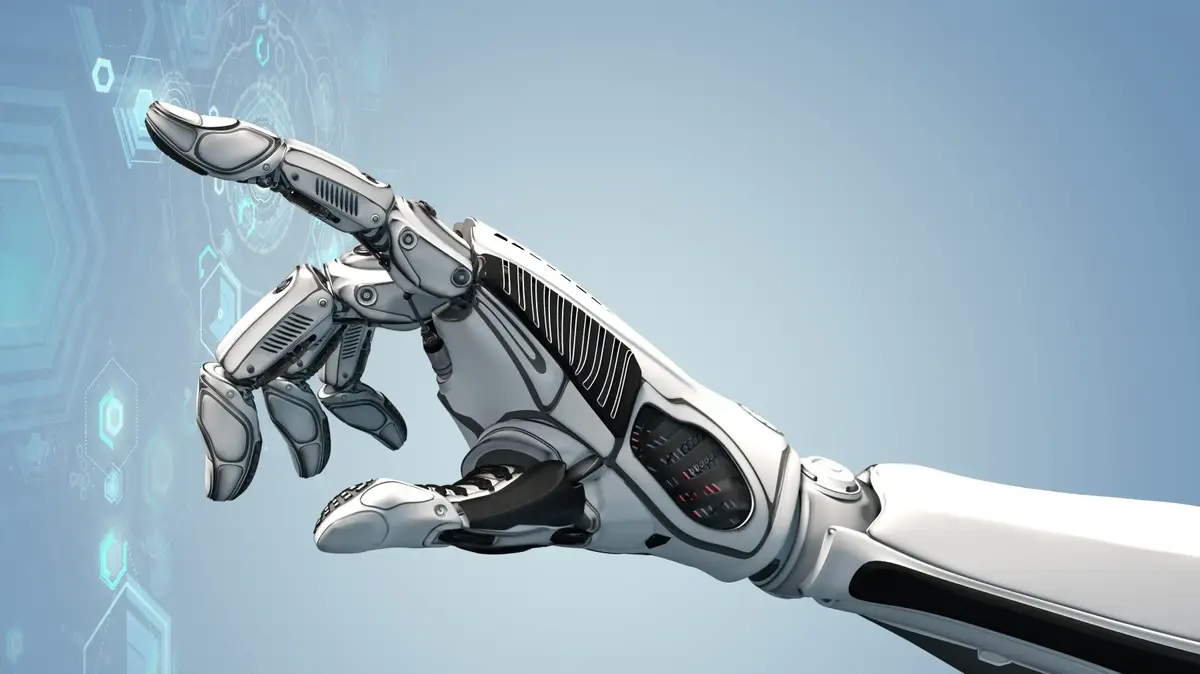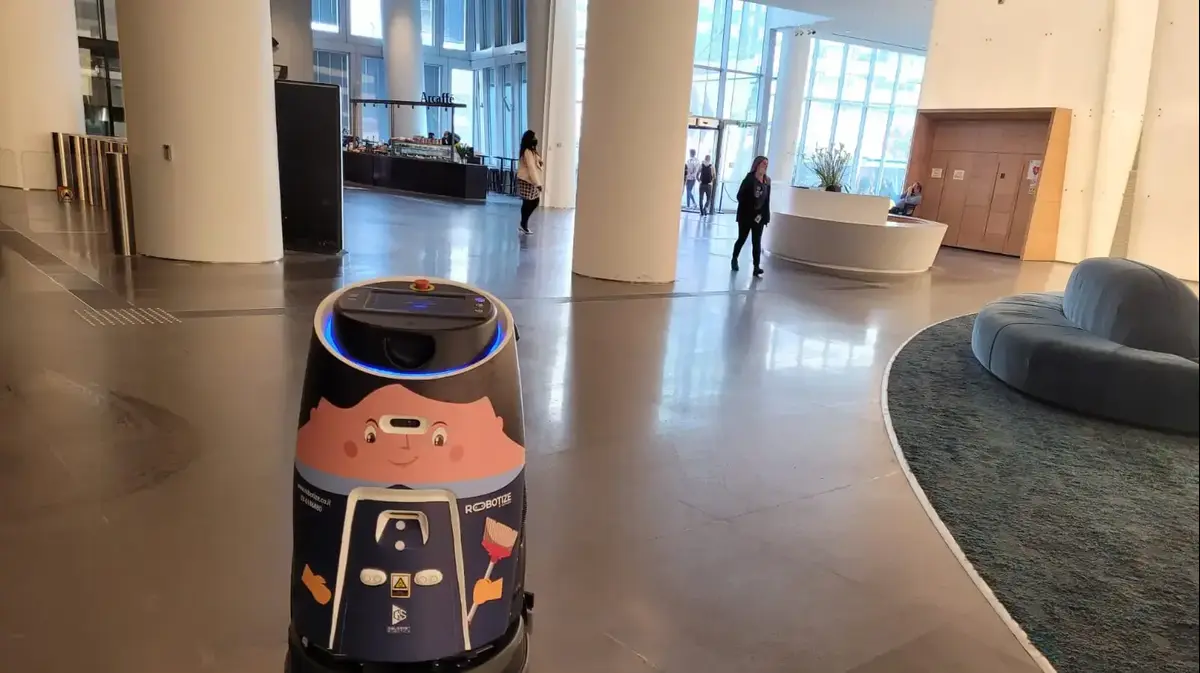Not like a Terminator: the robots that will save the Earth
Artificial intelligence makes our lives easier and makes them more comfortable, but technology is also used to fight climate change. So investing in the right technology will help us save the ball
Not like a Terminator: the robots that will save the Earth
angleThe 15th-century Jewish-urban legend of the Golem from Prague is probably one of the first stories to introduce human abilities to inanimate objects and the dangers of losing control of them. Artificial intelligence breakthroughs make the 21st century golem a valuable tool in dealing with the global environmental crisis.
More in Walla! NEWS More in Walla! NEWSThe article you should look at for a boss: It's best for everyone not to come to the office
To the full articleMore in Walla! NEWS
Fast and electric: Get to know the new municipal vehicle arriving in Israel Tahina is bannedLearn, process, solve
Artificial intelligence is a branch of computer science that seeks to make machines act and respond like human beings. For this, machines need to learn patterns and categories and absorb sensory information while experimenting - this training is also called deep learning. These components are shared with applications like Siri and Alexa, autonomous cars and robots: they process a lot of information to perform tasks in accordance with regular patterns, but also in response to changes.
Recently there has been a major breakthrough in the field: computational capabilities, sophisticated algorithms, hardware and huge data management (Big Data) - allowing Netflix to offer you a new movie, Facebook to tag your photos, and service centers to solve hardware problems for you. The leap in capabilities also translates into economic activity: by 2030, artificial intelligence is expected to contribute about $ 16 trillion to global GDP.
The ability to sense the environment, study environmental variables and patterns, and process historical and contemporary information makes artificial intelligence a "game-changer" in the area of sustainability and environmental protection as well. In May 2019, a United Nations Special Conference on Artificial Intelligence and the Environment was held to promote this area and channel additional investments into it. One estimate was that the contribution of environmental applications to global GDP would reach $ 5.2 trillion.
More in Walla! NEWS More in Walla! NEWSThe end to the plastic island? The patent that will allow complete circulation of the material
To the full articleEnvironmental intelligence
A joint report to the World Economic Forum and the PWC highlighted six environmental areas in which artificial intelligence has an important role to play: climate crisis, biodiversity, oceans, water security, air pollution and extreme weather resistance.
The climate crisis is the biggest contemporary human challenge and artificial intelligence has a significant role to play. Smart management of urban transport or the electricity grid, for example, can save greenhouse gas emissions and air pollution. A report by PWC and Microsoft estimated that artificial intelligence could reduce global greenhouse gas emissions by 4 percent by 2030 (equivalent to Gt2.4 carbon dioxide). Alongside the crisis, improving weather forecasting can ensure coping Better intelligence with extreme events (such as storms or fires) thanks to more accurate alerts. Artificial intelligence is already helping to make environmental decisions in areas such as agriculture - improving productivity through various means - or managing the water network (as IBM does in China).
Another area where artificial intelligence is recruited is environmental enforcement, which for various reasons is a point of failure in environmental management. A study published in the scientific journal Nature in October 2018 estimated that the number of violations detected by anti-pollution regulations could increase up to seven times at lower costs for the authorities (from 6.7 currently identified to 13-50 percent with AI). Thanks to the immediate identification, pollutant processes (especially industrial ones) can be stopped at an earlier stage, which will help the industry meet the required standards and save indirect costs of long legal processes. Similarly, patterns of illegal fishing or wildlife hunting can be identified and thus prevented.
Efficient transport management (Photo: shutterstock)
Cars on highway (Photo: ShutterStock)
Environment windows
Overcoming technical obstacles to nature conservation is also evident in the WildMe venture, which is designed to help participants in civil science ventures identify species correctly and thus help experts in the analysis of the vast visual information collectedAn important part of developing artificial intelligence projects is getting out of the lab into the real world and learning in the field. One of the leaders in the field is the technology giant Microsoft, which launched in 2017 under the "AI for Earth" initiative and is investing $ 50 million in grants over five years to expand the use of applications for biodiversity and nature conservation.
One project is that of an organization working to protect the snow leopard, a unique and mysterious Asian predator. The snow leopard population has fallen to about 6,000 individuals and is in danger due to dwindling living space, poisonings, hunting, climate change and the like. Because of the difficulty of tracking this species, the organization uses cameras with motion sensors and heat to monitor the population across vast spaces. Microsoft's artificial intelligence solution helps the organization quickly analyze hundreds of thousands of images from dozens of cameras while reducing detection and omission errors and thus obtaining an accurate picture of the population and even details within it.
Overcoming technical obstacles to nature conservation is also prominent in the WildMe venture, which is designed to help participants in civil science ventures identify species correctly and thus help experts in the analysis of the vast visual information collected. In Germany, a team of experts has developed the "Shazam of nature," a system that allows voice recognition of species and analysis of their population size, and they use Microsoft to expand the application, which overcomes the considerable effort involved in using other means, such as trapping or visual tracking when it comes to insects. Thus, for example, the information gathered with the aid of the application in an agricultural field enables accurate use of pesticides and fertilizers and is better used for insects for pollination or biological pesticides.
"Artificial intelligence can also be harnessed for self-improvement," says Dr. Tomer Simon, VP of National Technologies at Microsoft Israel, which coordinates the AI for Earth venture in Israel. "Thus, Microsoft has reduced 24.7 percent of its electricity consumption on its huge campus in Redmond, which has 150 buildings and 60,000 employees, saving millions of dollars in operating expenses. The scale of such an application can be raised and the environmental seal lowered, which fits very well with dense Israeli reality. ".
More in Walla! NEWS More in Walla! NEWSAlon Gal advises: This is how you market your painting workshops
To the full articleWhat next?
Of course, the big tech companies don't invest in environmental applications just for altruistic reasons. Artificial intelligence advances as the systems learn more, so collaboration with bodies that can utilize it is essential for further development. In addition, such programs enhance public relations - Microsoft, for example, used the Snow Leopard Initiative as a TV commercial for its technology.
Artificial intelligence can play a part in changing the course of the environmental crisis and alongside the efforts of technology companies, the academy is also taking part in this. The University of Cambridge, for example, has set up a £ 200m public investment research center on artificial intelligence and sustainability. Recently, leading scientists in the field, in a long article, have called on the artificial intelligence community to harness their efforts to combat climate crisis and business decision-makers have Optimistic about the use of these technologies.
Technology also involves risks such as incorrect decision making (after all, the machines learn from imperfect people), ethical bias (who taught the machine?), Lack of transparency (decisions are not always in line with human rationale), and dangerous use (e.g., for terrorist purposes). But even if artificial intelligence is not a magic solution, its potential for maintaining sustainability and addressing environmental challenges is enormous.
"Israel," Simon believes, "can restore its days as an exporter of agricultural technologies thanks to artificial intelligence-based developments, for example in the field of precision agriculture, which enable surgical treatment in almost every aspect of the agricultural unit. All you need is a smartphone and an app."
More in Walla! NEWS More in Walla! NEWSIt is the safest investment in the real estate world today
In collaboration with Rilko
To the full articleThe article was prepared by Angle - Science and Environment News Agency












